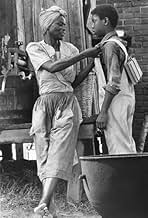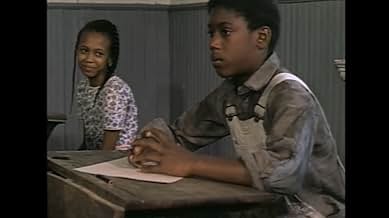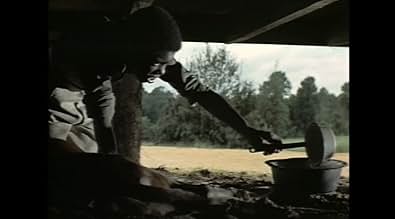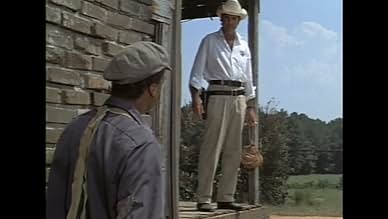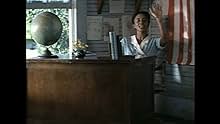Sounder
- 1972
- Tous publics
- 1h 45m
The oldest son of a loving and strong family of black sharecroppers comes of age in the Depression-era South after his father is imprisoned for stealing food.The oldest son of a loving and strong family of black sharecroppers comes of age in the Depression-era South after his father is imprisoned for stealing food.The oldest son of a loving and strong family of black sharecroppers comes of age in the Depression-era South after his father is imprisoned for stealing food.
- Director
- Writers
- Stars
- Nominated for 4 Oscars
- 5 wins & 12 nominations total
- Harriet
- (as Sylvia 'Kuumba' Williams)
- Mr. Perkins
- (as Ted Airhart)
- Teacher
- (as Merle Sharkey)
- Judge
- (as Judge William Thomas Bennett)
- Pastor
- (as Reverend Thomas N. Phillips)
- Director
- Writers
- All cast & crew
- Production, box office & more at IMDbPro
Featured reviews
Here is something I would wager most of you can relate to: For a film that was shown in theaters in late '71 and early '72, SOUNDER was QUITE unique. It was WAY ahead of its time.
Compare SOUNDER's somber tone and subject matter, its very deliberate pacing and mood to other films with a predominately Afro-American cast from that time frame. Notice any difference? No BLACKxploitation here! SOUNDER is completely character-driven! This is undoubtedly why a lot of people seem to define it as "Slow".
Sadly lacking on the NF-DVD of SOUNDER, from which I viewed This film, were any special features, whatsoever! Just the movie and the trailer... That's it! I really yearned for background info!
Set in rural Louisiana in 1933, perhaps the worst year of the Great Depression, Paul Winfield and Cicely Tyson both shone in career-defining roles. Winfield, as the father, short on education but long on character, strength and spirit, who is sent off to an undisclosed prison for a year for his first criminal offense... Stealing a ham to feed his starving family; Tyson, as the dutiful, solid-as-a-rock, stand-by-her-man wife and mother. My hat is off to Ms. Tyson. Despite being considered something of a black sex symbol at the time of filming, she accepted a role which required a very scruffy and unflattering, no make-up look! And what a fine job she does! My Rating: A resounding 10*************
Quiet, slow but ultimately very moving tale of a poor black family in the 1930s. There's some beautiful shots here (it was shot on location in Louisiana) and very little dialogue and only occasional music. I must admit I was getting a little bored at first--I wanted the story to MOVE! But the film slowly grew on me and, after half an hour, I was hooked. The images tell the story along with some very moving Oscar-nominated performances by Winfield and Cicely Tyson (as his wife). Even young Hooks (who was only 14 when this was done) is quite good. The film slowly works on you and, by the end, I was crying my eyes out--But don't worry--it DOES have a very happy ending.
This was a HUGE hit in 1972. It was one of the few G-rated films dealing with a black family. Unlike most other 1970s black films it had no drugs, violence, sex or swearing--this was a true rarity back then. And white, black, young and old audiences loved it. It works on all levels. It was also nominated for Best Picture. It didn't win anything but the fact that it was nominated was enough. The cast went through hell making it. I remember, in an interview, Winfield said it was brutally hot during the whole shot, the cast was eaten alive by mosquitoes and he caught a TERRIBLE case of hay fever from all the pollen. It's to this whole casts credit that they all give out good performances. Sadly...this film has been forgotten. That's too bad...it should be rediscovered.
There was a sequel 3 years later (with a different cast). It was "Sounder Part 2" but it seems nobody has ever seen it. But don't miss this one. A perfect family film.
Did you know
- TriviaCicely Tyson is 15 years older than Paul Winfield.
- GoofsJames Best as the Sheriff wears sideburns that, while characteristic for 1972, when the film was made, are definitely out of fashion for 1933, when it is set.
- Quotes
David Lee: Miss Johnson? Don't you teach in your school about folk who ain't dead?
Camille: Sure! Here's one about a man who's very much alive. Dr. William E.B. DuBois.
David Lee: What does he talk about?
Camille: Here, I'll read something he said:
[reading from "Of the Training of Black Men"]
Camille: "The longing of black men must have respect."
[pauses to explain to David Lee]
Camille: Which means a man and a woman are human and must be treated that way.
[continues reading]
Camille: "The rich and bitter depth of their experience, the unknown treasures of their inner life, the strange rendings of nature they have seen, may give the world new points of view and make their loving, living, and doing precious to all human hearts. And to themselves in these days that try their souls, the chance to soar in the dim blue air above smoke is to their finer spirits boon and guerdon for what they lose on earth by being black."
David Lee: You're a nice lady, Miss Johnson.
- Crazy creditsThe 20th Century Fox fanfare doesn't play during the opening.
- ConnectionsFeatured in Sneak Previews: The Life and Death of the Black Movie (1981)
- SoundtracksNeeded Time (Theme from Sounder)
Written by Taj Mahal
Performed by Lightnin Hopkins
Courtesy of Kent Records and special thanks to John Williams
Details
Box office
- Gross US & Canada
- $3,100,601
- Runtime1 hour 45 minutes
- Color
- Aspect ratio
- 2.39 : 1


